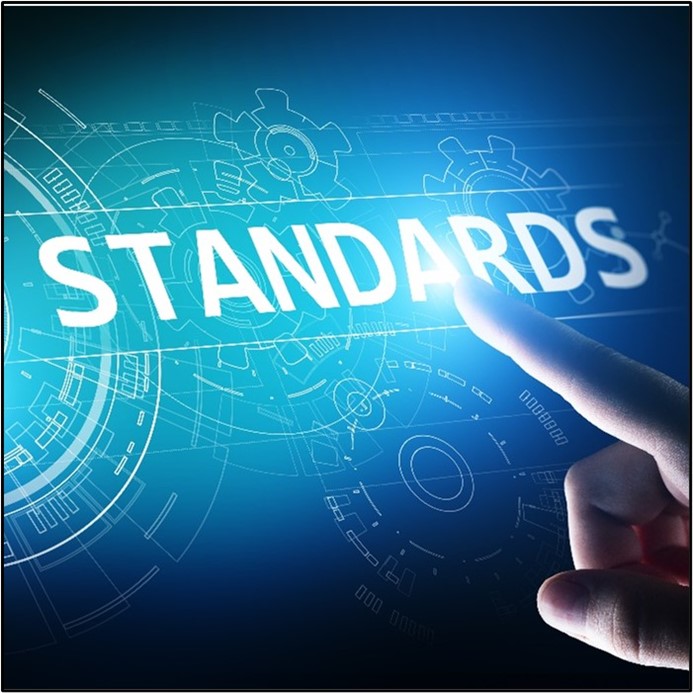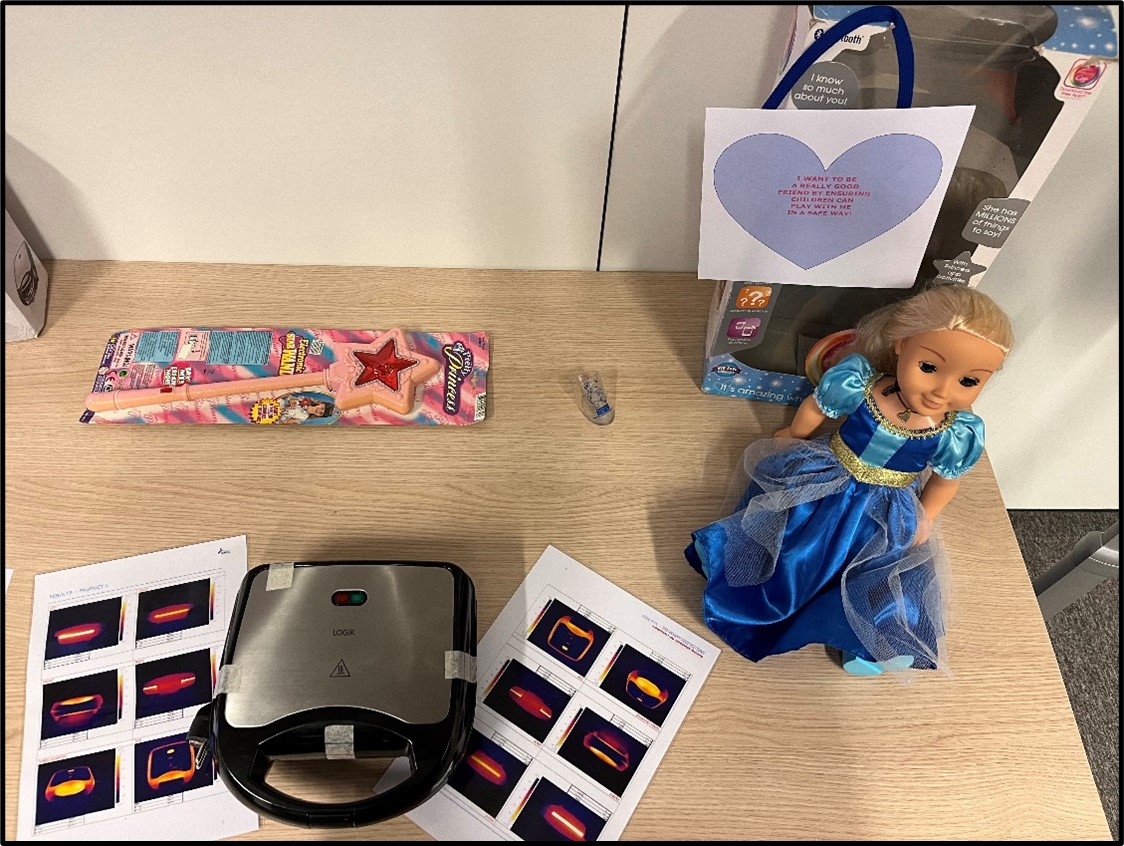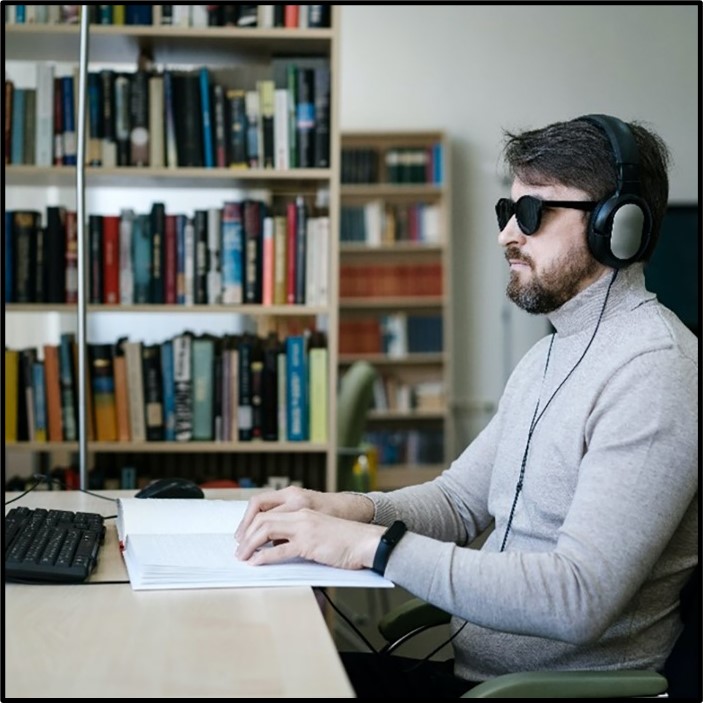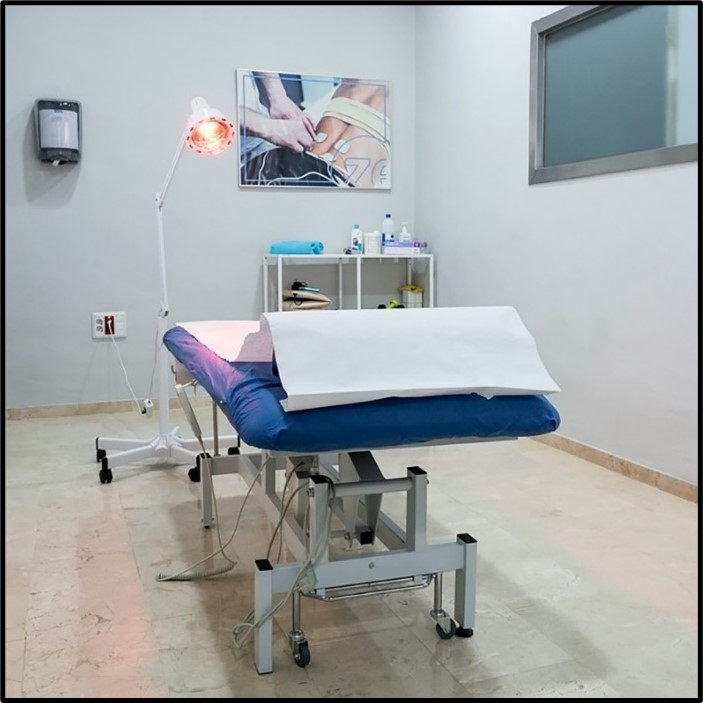|
ANEC Webinar ‘Safe products for all consumers – EC study on gender-responsive and inclusive standards’We are pleased to invite you to a new ANEC open webinar: ‘Safe products for all consumers – EC study on gender-responsive and inclusive standards’, taking place on Friday 8 March 2024 from 11h00 to 12h00 CET (Brussels time). We will be honoured to have Frauke Hoss from the European Commission (GROW.H.2) to present the recent “EU 2024 Study on inclusiveness of anthropometrics in European harmonised standards”, with ANEC’s Chiara Giovannini guiding you through this webinar. The initiative aims to gather informative and objective evidence about the extent to which the European harmonised standards (hENs) safeguard the general principle of equality and safety so that products are safe for the European population in all its diversity. Overall, the study aims to improve our understanding of the implications for safety and health caused by standards that do not sufficiently consider the diversity of anthropometric dimensions of human bodies. To this end, such standards need to be based on recent data that is representative of the EU population, both in the design and testing of products. To register for the webinar (by 8 March), please go to: http://tinyurl.com/m5pn38y5. We look forward to having you join! |
Call for an expert on AI CybersecurityANEC is seeking an expert to provide us with cybersecurity technical expertise, represent our organisation, and promote and defend consumer interests in AI standardisation. The new ANEC expert will have the exciting opportunity to join the newly-established CEN – CENELEC JTC 21 ‘Artificial Intelligence’ Working Group 5 ‘Joint standardisation on Cybersecurity for AI systems’, which has the initial scope of exploring ways and means to address cybersecurity standardisation specific needs for AI systems to develop relevant standards. The work entails participation in meetings and providing expertise in terms of written comments, as well as advice to the ANEC Digital Society Working Group, ANEC CYBER Ad Hoc Group and ANEC Secretariat. Profile
Tasks The expert will be required to:
ANEC will review applications on a rolling-basis. If you believe you could contribute to our work, please send an up-to-date CV and letter of motivation (in English) to This email address is being protected from spambots. You need JavaScript enabled to view it.. We offer a daily allowance (maximum 95€ per day) and reimbursement of travel, accommodation, subsistence and connection expenses in line with the rules laid down by the European Commission and EFTA Secretariat. Above all, we offer the possibility to our experts to influence legislation and technical standards to the benefit of all those in society. |
Horizontal
ANEC/BEUC position paper on governance of European Standardisation
Standards - most particularly harmonised standards - are key to ensuring that products placed on the EU market respect the health and safety of consumers among other political and legal needs. Their drafting should be subject to both openness and scrutiny to ensure they uphold the ambitions of EU legislation. Despite the provisions for “inclusiveness” introduced by Regulation (EU) 1025/2012, the voice of civil society organisations is still too often not heard in the European Standardisation System, and the scrutiny process for harmonised standards too opaque. Additionally, there is no boundary to what is “standardisable” and what is not, or where the legitimacy of the standardisation organisations ends in setting requirements that can have legal effect.
ANEC has joined forces with BEUC, the mainstream European Consumer Organisation, to make proposals to improve the system. See our recently-published position paper (http://tinyurl.com/2k2jmb29)

Our position paper includes the following recommendations:
- Amend Regulation (EU) 1025/2012 to modify the overall governance system. In the context of the evaluation of this Regulation, we believe it is timely to discuss such a change.
- Define the principles and limits of standardisation, including areas where harmonised standards must not be used, such as the definition of fundamental rights.
- Replace the current system of Harmonised Standards Consultants (HAS) system by a multi-faceted Standardisation Scrutiny Board.
- Give the European Commission the possibility to choose whether the drafting of a harmonised standard can be offered to an international standardisation organisation (notably ISO/IEC).
- Ensure that the texts of harmonised standards are free to read by the public.
- Strengthen the participation and rights of civil society stakeholders at all levels of standardisation (national, European, international).
ANEC joins CEN-CENELEC training
ANEC was delighted to speak at the CEN-CENELEC training session for Technical Body Officers on “Inclusiveness of the ESS – Enhancing the involvement of societal stakeholders and SMEs” held on 4 December 2023. Chiara Giovannini presented ANEC’s work as an Annex III organisation representing consumers in the European Standardisation System.
Furthermore, during the break, ANEC showed ‘real life examples’ of problems encountered during the development of a standard.

AUWP 2024
The latest Annual Union Work Programme for European Standardisation (AUWP) identifies the European standards and standardisation deliverables that the Commission intends to request in 2024.

In 2023, ANEC contributed to the elaboration of the standardisation priorities set out in the AUWP 2024, including through the EC High Level Forum on Standardisation (HLFS).
We are pleased to see several consumer-relevant priorities have been taken into account, including eco-design, child care articles, Artificial Intelligence and cybersecurity, and e-vehicles charging.
To download the AUWP 2024, visit: http://tinyurl.com/yc6z97pt.
ANEC signs MoU with THUAS
ANEC has agreed a Memorandum of Understanding (MoU) with The Hague University of Applied Sciences (THUAS), related to the university’s International and European Law Programme (http://tinyurl.com/3bzu6pcc).
Signed by ANEC Director-General Stephen Russell, and THUAS Team LAW’s Programme Director Clair Moore, the MoU is a concrete step in ANEC’s implementation of the High-Level Forum on Standardisation’s Pledge to promote education and skills on standardisation. The Pledge was signed by members of the HLFS on 30 November 2023, including by ANEC President Dermott Jewell.

With this, ANEC commits to take local activities to promote and implement education and training on standardisation, by delegating its representatives to hold guest lectures in the framework of the Law Faculty’s EU Business Regulation minor, and THUAS's annual Employment Network Event. Moreover, ANEC will also engage THUAS Team LAW students in an umbrella research project into the standardisation of horizontal services in the EU, and will continue its membership of the Professional Advisory Committee for EU Law through the ANEC Secretariat’s Michela Vuerich.
We must thank Dr Orsolya Tokaji-Nagy, Ph.D., LL.M. for her help in establishing the MoU.
New EU market surveillance actions
ANEC attended the launch of CASP2024 (coordinated actions on the safety of products) in January and of JACOP2024 (joint actions on compliance of products) in February. Both CASP and JACOP are financed by the European Commission.
Many of the actions fall under ANEC’s programme of activities. CASP2024 will check the safety of baby soothers, highchairs, lighting chains, mini electric heaters, disposable electronic cigarettes, bicycles for children and slime toys on the market. In addition, it will include a horizontal activity on standardisation.

JACOP2024 will check the compliance of activity toys; eco-design and energy labelling requirements of fridges, solid fuel boilers, air cooling, refrigerating appliances with direct sales function; of electric motors; children’s car seats; and LVD products (installation cables and LED replacement tubes).
Market surveillance is crucial for consumer protection as legislation and standards are of little value if not enforced. ANEC looks forward to contributing to several of the joint actions.
Child Safety
ANEC welcomes revised standards for bunk beds and high beds
We welcome adoption of EN 747-1 ‘Furniture - Bunk beds and high beds - Part 1: Safety, strength and durability requirements’ and EN 747-2 ‘Furniture - Bunk beds and high beds - Part 2: Test methods’. Both drafts were out for Formal Vote until 11 January. ANEC submitted support and favourable opinions.
The two parts for the revision of the standard for bunk beds were drafted by a Project Group under CEN TC 207 WG2 ‘Children’s and nursery furniture’, with active ANEC participation.

In comparison with the previous standards, requirements have been added for vertically protruding parts; shear and squeeze points; accessible holes, gaps and openings; safety barriers around beds; means of access; platform and stairs. Requirements for bed base(s); for strength of frame and fastenings; stability; instructions for use and for marking are now provided in more detail.
ANEC was asked to draft a rationale to explain the requirement for the layout of the stairs or ladder to climb to the access platform. ANEC also proofread the two standards before they were submitted for Enquiry and Formal Vote
New EC guidance on Toy Safety
In December, we welcomed the EC publishing a revised version of “Guidance document N°7 - Toys and other products used in or on the water” (http://tinyurl.com/3va93sar).
Guidance Documents on the application of the Toy Safety Directive are non-binding documents intended to provide guidelines to help Member States and stakeholders make the distinction whether a product is a toy or not. ANEC is consulted during the development of the Guidance documents.
 (copyright ANEC)
(copyright ANEC)
Following a proposal from ANEC, water walking balls were included in Guidance document N°7. This group of products, not considered toys, consists of giant inflatable balls to be used on the water, usually present at holiday camp/resort, activity centre or aquatic parks, where children can walk inside the ball under the supervision of an adult. Consumers can also buy the products online.
Accessibility
ANEC and EDF meet
The 35th ANEC Accessibility Working Group meeting took place on 21 November 2023.
The meeting reviewed EU policy developments, followed by an exchange of views among experts on standardisation work in access and usability of the built environment and lifts; assistive products and services; and ergonomics.
The following day the ANEC-EDF European Accessibility Act (EAA) Project Team met for the first time. The aim of the Project Team meeting was to discuss the state of play of the standards envisaged in the EAA SReq, as well as future action to influence those standards.

The Chair opened the meeting by presenting the horizontal approach to accessibility, followed by an ANEC presentation of the EAA SReq, and discussion. Last but not least, the experts saw a presentation from the ETSI TC EMTEL on the new standard for accessibility and interoperability of emergency communications, and for the answering of emergency communications by the public safety answering point (PSAPs), including to the single European emergency number 112.
Domestic Appliances & Child Safety
CENELEC work item on medical treatment tables
In 2018, ANEC learned of an accident in Iceland where the head of a girl became stuck in a medical treatment (therapy) table. Furthermore, several workers (e.g. cleaning staff) have been killed or seriously injured in accidents after becoming entrapped in these tables. The majority of electric therapy tables are height-adjustable via a foot switch. The main cause of the accidents has been foot switches that were unintentionally operated. There has been no European standard for these products.

As a result, a German national technical specification (pre-standard/Vornorm) was drafted. ANEC followed development of the specification through ETUC (the “Annex III organisation” defending workers’ interests in standardisation), and German Commission for Occupational Health & Safety and Standardization, KAN.
CENELEC TC 62 ‘Electrical equipment in medical practice’ has now decided to start work on a standard for ‘Medical couches’. We plan to follow its development.
Sustainability
Final steps on PPWR
As anticipated in the previous ANEC Newsletter, following the European Parliament plenary vote, on 18 December, Member States in the Environment Council adopted their general approach (http://tinyurl.com/efm9h4td) on the Packaging & Packaging Waste Regulation (PPWR)
Despite much lobbying from industry, the Council’s position preserves the ambition of the PPWR on several fronts: it includes waste prevention targets and a longer list of packaging to be banned; it maintains broad support for reuse; it also keeps Mandatory Deposit Return Schemes (DRS) for metal and plastic beverage containers, with a target of 90% collection for recycling.

The three EU institutions have now entered the final phases of the negotiations and will continue meeting regularly in trilogue to discuss their positions, with a view to a final agreement before the 2024 elections.
We find it remains crucial to uphold the aspirations set out in the PPWR proposal, with added emphasis on solutions that are uppermost in the waste hierarchy.
ANEC calls on the institutions to keep in mind the following priorities:
- Support waste prevention targets to prevent overpackaging and unnecessary packaging, such as disposable tableware in HORECA, and fruits and vegetables packaging, where not required to protect the products.
- Reject proposals to add exemptions and derogations from prevention and reuse measures.
- Support and strive for ambitious reuse targets, and ensure the reuse potential is fully achieved.
- Maintain the European Parliament’s proposals especially for:
- A ban of Bisphenol A (BPA) and 'forever chemicals' PFAS in food packaging
- A delegated act to supplement this Regulation to establish minimum requirements for reusable packaging, and for it to be supported by European standards.
Read more on ANEC position on PPWR (https://www.tinyurl.com/ANEC-PPWR) and joint papers about the benefits of packaging reuse (http://tinyurl.com/2p83t76n), and Extended Producer Responsibility (http://tinyurl.com/53s4m9ru).
Ecodesign
Ecodesign of Smartphones
The first EU Ecodesign and Energy Labelling rules on mobile phones and tablets have been adopted. By June 2025, these products must be designed to last longer and be more repairable.
The EC has issued a SReq for the development of standards to verify compliance with these Ecodesign requirements. These include material efficiency requirements, such as reliability; preparation for reuse or recyclability, and requirements for energy efficiency.

ANEC is already participating in this SReq through the first dedicated stakeholder meetings which took place in December 2023 and January 2024. We are assessing the first proposals, and advocating the importance of test methods being trustworthy and reflecting real life.
Digital Society
New webpage: AI & Standards
ANEC and BEUC are leading a project to promote consumer interests in standards for Artificial Intelligence (AI). This project is financed by the Mercator Foundation. A new webpage (https://anec.eu/projects/ai-standards) explains why AI standardisation is so important, and why and how civil society organisations should engage in it.

ANEC on the road to net zero
ANEC Deputy Director-General, Chiara Giovannini, participated as a panellist at the CEN-CENELEC-DKE event, ‘Road to Net Zero: Standards for the All-Electric Society’, held in Brussels on 5 December 2023.
 (with thanks to CEN-CENELEC-DKE)
(with thanks to CEN-CENELEC-DKE)
Chiara participated in the panel, ‘Stakeholder focus - unlocking future standardization work: spotlight on consumers’ by conveying the message that “Standards play a key role in the development of sustainable energy consumption and production, by reducing the use of resources and of environmental and human health impacts. For consumer products, standards can support consumers in choosing the best products and energy consumption behaviours and help eliminate the most unsustainable products from the market”.
Work approved on “Trustworthiness framework”
ANEC welcomes approval of the CEN-CLC JTC 21 New Work Item Proposal for a European Standard (EN) on “AI Trustworthiness framework”. We supported its adoption.
The proposed standard will support implementation of the EU AI Act and the AI SReq, complementing standards providing presumption of conformity to the legal requirements.
Thanks to funding from the European AI & Society Fund, ANEC expert, Pete Eisenegger, has been contributing to the elaboration of this work, which is considered key in offering a high level of consumer protection. However, he has encountered much resistance from experts from the “big tech” companies who have tried to stall approval of the work.
Trustworthiness embraces all the key aspects of AI that are needed by European society. It includes addressing AI ethical issues in a practical way, as well as including security, privacy, safety and inclusivity with a risk removal/mitigation-based approach. Nevertheless, more standards are needed on Trustworthiness requirements for consumers, and we hope the Trustworthiness framework will provide the foundation for these other standards.

ANEC at EAISF–CIVITATES event
At the end of January, ANEC attended an event co-hosted by the European Artificial Intelligence & Society Fund (EAISF) and CIVITATES.
The purpose of the event was to foster reflections between funders and grantees about the development of the civil society ecosystem that is working on technology. It addressed what the ecosystem needs, looking ahead to shifting political challenges and changing societal landscapes.

ANEC joined a workshop on identifying the strengths and gaps in capacities in the ecosystem, and attended a lively panel debate on how such work intersects with related trends both in the USA and in anti-trust.
The event resulted in a strengthening of the ecosystem, and greater understanding of one another’s work, which will facilitate future coordination and collaboration. ANEC was able to build on existing relationships and make several new connections. We were also able to share our passion for more inclusiveness in standardisation with fellow grantees.
News from ANEC member countries
Germany

DIN Study on online marketplaces
The DIN Consumer Council has published an English version of its study from 2023 titled, “Online marketplaces from the consumers’ perspective: problems, barriers and solutions”. The study is available free of charge at http://tinyurl.com/y99v9jcj.
Trade via online marketplaces accounts for almost half of total online retail sales. Online marketplaces - i.e. platforms on which a large number of third-party retailers offer their products - have many advantages for consumers, in particular a wide range of products and standardised, simple transaction processes.
At the same time, however, there are also many consumer problems with transactions via online marketplaces. Against this background, ConPolicy was commissioned by the DIN Consumer Council to investigate consumer problems in transactions via online marketplaces by means of a literature analysis and a representative online survey and to derive recommendations for action for consumer policy and standardization from the results.

The key findings of the analysis are:
- For the most part, consumers do not have a clear understanding of the division of responsibility between online marketplaces and third-party retailers.
- Consumers encounter a variety of problems when making transactions via online marketplaces. The focus is on the quality of the products delivered, their fit with customer interests, and the customer service of online marketplaces and third-party retailers.
- Consumers expect online marketplaces to take responsibility with regard to the transparency of their business model and the prevention of unfair business practices.
This leads to the following recommendations for consumer policy:
- Before making a decision, consumers should be clearly informed that it is not the online marketplace but the third-party retailer who is the contractual partner and, as such, the addressee of cancellation and warranty rights.
- From the consumer's point of view, a general standardised liability of online marketplaces makes sense, which always applies if consumers are harmed in the course of the transactions with third-party traders and if compensation cannot be obtained from the third-party trader.
For standardisation, the findings of the study result in the following recommendation:
- Standardisation can contribute to a clarification of the definition of online marketplaces; to a clear communication of the division of responsibility between online marketplaces and consumers, and to a concretisation of the design and testing obligations of online marketplaces. This can happen either through specific standardisation for online marketplaces or through specific amendments to the general standards for online trading.
| List of meetings 2024 |
For comments or if you wish to write an article for the ANEC Newsletter, please contact: Helena CLARK (This email address is being protected from spambots. You need JavaScript enabled to view it.).


